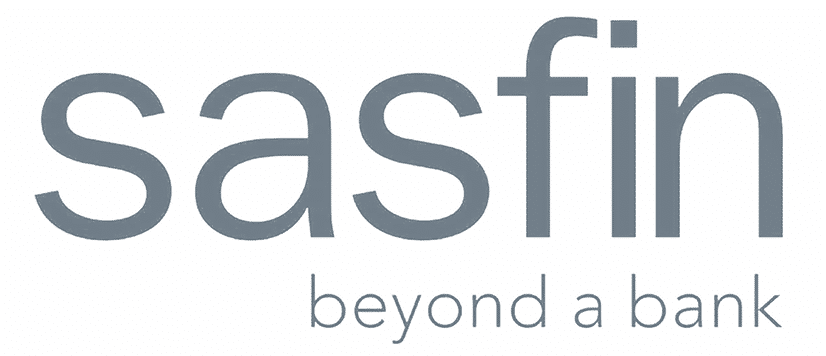Today, with sensitive data constantly at risk in the digital realm, cybersecurity is a pressing concern for both individuals and businesses. Although firewalls, encryption, and intrusion detection systems are integral to preventing breaches within networks, one fundamental line of defence is often neglected: maintaining good password practices when connecting to your network. Weak, compromised or mismanaged credentials are the #1 cause of data breaches, yet they present one of the simplest and most effective ways to protect systems.
Password hygiene refers to the measures individuals and organisations take to create, maintain, and secure their login credentials. Password Security plays a crucial role in the overall context of cybersecurity and serves as our first line of defence against unauthorised access. These two facts combine to make strong credentials mean the difference between making an attacker’s job easy or hard.
Why Password Hygiene Matters in Cyber Security
Hygiene is often undervalued, and that is no less true when it comes to one of the most critical measures contributing to Cybersecurity effectiveness: Password Security. Weak or stolen passwords are among the leading causes of security breaches globally. Weak password security, such as using common patterns (e.g., 123456) or reusing the same code for multiple accounts, makes it easier for cybercriminals to infiltrate a network.
From a security standpoint, passwords are the digital keys that grant access to personal information and sensitive systems, such as banking and financial records. When these keys are weak, it is like leaving your front door unlocked in a neighbourhood where break-ins are common. Attackers exploit these weak points through brute force attacks, credential stuffing, and email phishing campaigns. Once inside, they can pilfer data, install malware or hold systems for ransom via ransomware.
Regulatory compliance is another reason why Password Security matters. Other sectors, such as healthcare or the financial services industry, are by law mandated to have strong cybersecurity procedures in place, including secure password policies. Paying scant attention to password hygiene can lead not only to breaches but also to fines, a damaged reputation, and loss of customer confidence.
This is also beneficial for identity protection. In the digital age, when people often manage dozens of accounts simultaneously, unique and strong passwords increase the likelihood that, in the event of one account being compromised, others will remain uncompromised. For businesses, mandating Password Security policies is essential to protect employee access, client data, and corporate systems, as well as an integral part of a comprehensive cybersecurity approach.
How to Create Strong and Secure Passwords
Strong credentials are the foundation of good password hygiene and a crucial step toward enhanced security. An effective password cannot be easily found or broken, even by a high-level cracker. However, a shockingly large number of users still use weak, easily guessable passwords for the sake of convenience. Here are a few simple tips for constructing stronger passwords:
Use length over complexity. The longer the password, the harder it is to crack. Go for a minimum of 12–16 characters. It makes you stronger if you add random words or phrases.
Mix character types. Use both uppercase and lowercase letters, including numbers and symbols. This variety also enhances resistance to brute force attacks, which are all too familiar in the cybersecurity world.
Avoid personal information. Birthdays, pet names or favoured sports teams can now be easily traced with the help of social engineering. Don’t use personal information in your passwords.
Use passphrases. Rather than a random string of characters, use memorable-but-secure phrases like “Pineapple! Train$Sky2024.” Passphrases balance usability and security.
Don’t reuse passwords. Each account should have a separate password. Reuse facilitates hackers’ ability to compromise multiple accounts with a single stolen credential.
Practising these rules helps people build their defence against attacks. Enterprises can enforce the generation of strong passwords and conduct training on Password Security to promote routine adoption by employees. It might sound like the world’s most mundane baby step, but in Cybersecurity, this is essential work.
The Role of Password Managers in Cyber Security
With the increasing number of digital identities to manage, maintaining unique and sophisticated credentials for each can be a challenge. It is in such a predicament that password managers serve as proper cybersecurity instruments. That’s where password managers come in: They keep, create, and automatically fill in complex passwords so that users are not as tempted to use impossibly easy ones or to recycle them from one service to another.
Secure storage. Password managers reside in a well-protected vault and are so secure that not even the strongest hacker could access this collection of passwords unless he has your master password. Such encryption is consistent with best practices in Cyber Security.
Password generation. As such, there is no reason not to have it randomly create complex passwords for each of your accounts. It’ll save you from a memory prompt that usually leads to bad decisions.
Convenience and productivity. With password managers, you are only one click away from automatically signing into the login page. It reduces the burden of managing numerous accounts and makes it easier to practice good Password Security.
Multi-device synchronisation. Most password managers can synchronise across devices, allowing you to access your credentials while keeping strong security protocols in place.
Additional features. More complex password managers may even come with features such as dark web monitoring, alerts for compromised accounts, and secure note-taking, all of which contribute to overall digital security.
At the user level, you don’t have to remember dozens of unique passwords with password managers. They offer a cost-effective way for companies to implement similar password security across teams at a company-wide scale. Combined with multi-factor authentication, password managers provide a robust security layer to complement your overall security strategy.
Best Practices for Password Hygiene in Cyber Security
Strong passwords and password managers are crucial tools, but must be combined in a larger best practices formula for an overall cybersecurity strategy. Here are essential guidelines:
Enable multi-factor authentication (MFA). MFA provides an additional level of protection by requiring more authentication, such as biometrics or a one-time code, in the event a password is compromised.
Regularly update passwords. Establish regular time periods to rotate the credentials associated with critical accounts. Frequent updates help mitigate the risk of long-term breaches.
Monitor for breaches. There are online services and password manager features that allow you to check if your password has been exposed in data leaks. In cybersecurity, quick detection is key.
Educate employees. For organisations, phishing awareness campaigns combined with password management best practices are essential to maximise the benefits.
Avoid public Wi-Fi logins. Credentials are vulnerable to theft when compromised on non-secure networks. A VPN can improve cybersecurity in such cases.
Centralise policy enforcement. Businesses need to have password length, complexity, and rotation dictated through IT policies. Automated enforcement provides control over cybersecurity policies and procedures.
Social behaviour and business practices have a lasting influence over time, and to the extent that individuals and firms wish to continuously cover their risks, they limit exposure. Amid the broader realm of cyber defence, Password Security is one of the easiest yet most effective ways to prevent unauthorised access and defend critical systems.
Conclusion
In the cybersecurity industry, we tend to focus heavily on the latest innovations. However, the humble password remains the most widely used and abused attack avenue. Weak, recycled or mismanaged passwords are easy avenues in for cybercriminals, so strong Password Security is a crucial line of defence. If strong credential practices are prioritised, both individuals and organisations limit their exposure in the event of a breach.
Strong, unique passwords are the first step. Lengthening the password makes for more complex, unpredictable passwords that resist brute force and social engineering attacks. Password managers complement this by securely storing and generating credentials, making good hygiene far easier to maintain. These measures are combined to promote a better user experience that does not sacrifice security best practices.
GET IN TOUCH WITH THE DIGITAL SCHOOL OF MARKETING
Equip yourself with the essential skills to protect digital assets and maintain consumer trust by enrolling in the Cyber Security Course at the Digital School of Marketing. Join us today to become a leader in the dynamic field of cybersecurity.
Frequently Asked Questions
The cybersecurity term “Password Security” refers to the practices of creating, managing, and securing login credentials. Good password hygiene involves using complex, unique passwords for all accounts and avoiding reuse or repetition of passwords. It also includes employing password managers and enabling multi-factor authentication. The secondary practices that act together to mitigate the risk of breaches by making it more difficult for attackers to guess, steal, or even exploit weak credentials also contribute to protecting both individuals and businesses from cyber predators.
Password hygiene is crucial in cybersecurity, as weak and reused passwords are among the most common methods for hackers to gain unauthorised access to accounts. Bad password policies make individuals and organisations vulnerable to phishing, brute force and credential-stuffing attacks. Good password hygiene means every account is secured by separate, strong credentials, which limits the threat of massive compromise. It has also enabled compliance with regulations and protected sensitive data, so it is a crucial frontline defence against cyberattacks.
A good password in Cybersecurity means it is long, complex, and unique. Experts advise using a minimum of 12-16 characters and mixing letters (including capitals), numbers, and special characters. Solid passwords do not follow a pattern, are not based on personal information and don’t include common words. Memorable and random combinations of words, known as passphrases, can significantly enhance security.
Password managers enhance cybersecurity by securely saving, creating and automatically inputting strong, unique passcodes. They encrypt all user data that they store, and only the person who made the account has access to it. Those random, complex passwords that users don’t have to remember or reuse for some ridiculous reason. Most also offer breach alerts and dark web monitoring.
In the field of CyberSecurity, it is recommended to avoid reusing passwords and to use long (yet unique) passwords in each place, renewing them periodically. Multi-factor authentication further enhances security, and password managers alleviate the burden of managing strong passwords. For consumers, that will also mean not logging into sensitive accounts when they’re on unsecured Wi-Fi networks—use the secure Wi-Fi connection instead.
Businesses can also enforce some password hygiene in cybersecurity by establishing practices such as using strong passwords, regularly updating them, and avoiding password recycling. Equipping employees with password managers mitigates friction but ensures adherence. Critical systems should require multi-factor authentication, and regular training can help staff identify common security threats such as phishing. IT tools automatically enforce policy to maintain consistency.





















